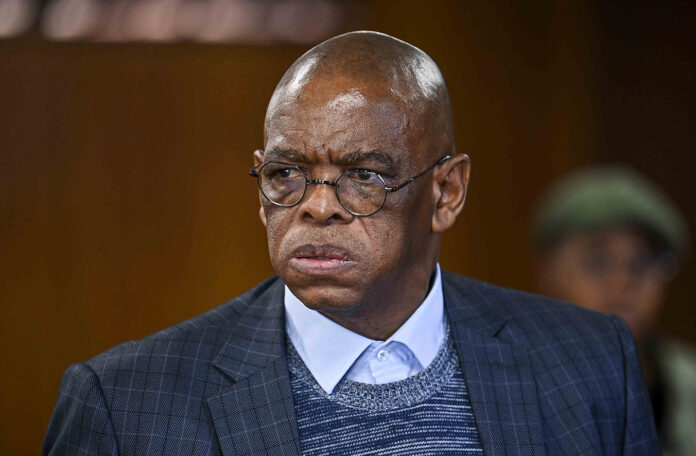Judge Phillip Loubser has warned that the high-profile asbestos graft trial, which is already beset by delays, could take two to three years to conclude.
Moroadi Cholota’s application for a trial within a trial was granted by the Free State High Court on Friday.
“Having regard to the case law, the norm is no doubt that it should be decided first and separately. The state was unable to refer the court to any specific authority to the contrary,” Loubser ruled.
“The special plea of no jurisdiction raised by accused 17 [Cholota] in terms of Section 106.1[f] of the Criminal Procedure Act is to be decided first and separately before commencement of the main trial proceedings.”
In a daring attempt, Cholota’s legal team contested the jurisdiction of the Free State High Court and the legitimacy of her extradition from the US.
Allegations of torture
This move to seek a trial within a trial led to contentious discussions between the defence and the state, further complicating a case that has captured South Africa’s interest.
In a scandal that has already tested the patience of the public, Cholota, formerly Ace Magashule’s personal assistant (PA), is accused alongside her former boss.
Her legal team, headed by advocate Loyiso Makapela, contends that she was unfairly treated, including allegedly tortured, while in the US and that her extradition was illegal.
The state, represented by advocate Johan De Nysschen, has vehemently denied these claims, asserting that Cholota was “wrapped in cotton wool” and treated with leniency.
De Nysschen argues that Cholota’s allegations lack credibility and that a trial within a trial is unnecessary, as the state can prove the extradition’s legality.
Nysschen said: “With all due respect, she says firstly that the conduct of the detective while they were in the US engaging with her amounted to unfairness to such an extent that she was tortured and intimidated.
“I say in my heart of arguments, tortured to do what? With all due respect, she said nothing.”
Treatment in the US must be tested
The defence has accused the state of attempting to sway the court prematurely, with Makapela insisting that any evidence regarding Cholota’s treatment in the US must be tested in the proposed trial within a trial.
“There’s no authority to support their position,” Makapela argued, describing the state’s opposition as an attempt to ‘make a mockery’ of legal principles.
The state, however, maintains that Cholota’s in-depth knowledge of the case made her a potential state witness, a role she declined, leading to her current status as a co-accused.
Loubser’s sobering estimate of a two-to-three-year timeline has raised concerns about justice delayed for all involved.




Running to the US and hoping to evade justice will not help.
She is also not a foreign citizen so SA hs all the right to extradite her to come face the allegations.
These people when they were in those comfort zones and cadre high positions thought they were untouchable.
You have nothing to fear if you did nothing wrong…however if you have a case to answer to then you must simply face the music; and that goes for all of them.